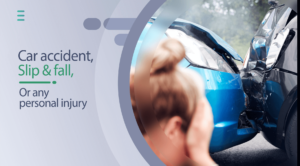A deposition is part of the discovery phase of the claims’ process. Both sides can use it as a way to build a case, while settlement talks continue.
Who is present at a deposition?
• The deposed witness
• The opposing party, and the same party’s lawyer
• The court reporter
What might the opposing party’s lawyer ask the plaintiff?
The plaintiff might be asked to explain how the accident took place.
—What was the time and date? What was the location?
—Were there any traffic signs or traffic signals at that specific spot?
—What were your actions during the moments leading up to the collision?
—How did your body move at the time of the collision?
—What did you say to the other driver, during the post-accident conversation?
—What happened to the vehicle that you were driving? How much did you spend on repairs to the same vehicle?
Plaintiffs must always answer questions about their injuries.
—When did you first get treatment? If you did not get treatment, please explain why you did not?
—Did you miss any time from work?
Both the plaintiff and the defendant should expect to hear this question: Did you drink any alcohol or take any prescription medication before driving your vehicle on that day? A “yes” answer to that question would suggest intent on the part of the driver.
There could be other questions, depending on what items had been found in the damaged vehicles.
—If the investigator had found items from a fast-food restaurant, the injury attorney in Woodbridge might ask this: Were you eating food from a fast food restaurant at the time of the accident?
—If an examination of cell phone records had shown that one driver was on the phone when the vehicles collided, then the same driver might hear this question: Who were you trying to call or text during the moments before the vehicles collided?
—If the investigators had discovered an open pocketbook in the plaintiff’s vehicle, then this might be one of the deposition questions: Had you just taken something from your pocketbook? Were you planning to put on makeup or comb your hair?
—If the vehicle’s radio had contained a device that could be used for selecting particular pieces of music, then this might have one of the questions: Had you been selecting some music to listen to during the moments before the crash?
A “yes” answer to the other questions would not display intent. It would, though provide evidence of negligence. Either driver could allege that the other driver had been negligent. If both were partly to blame for the accident, both of them would find that their compensation had been reduced.




